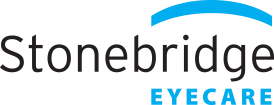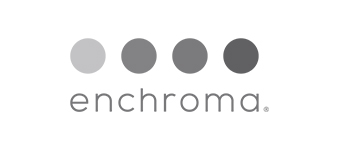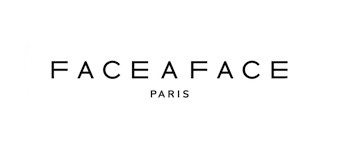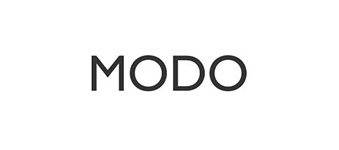Figuring out what’s covered by healthcare and what needs to be paid for out-of-pocket can be confusing, especially regarding eye care. Most people are recommended to have comprehensive eye exams every 2 to 3 years, but Sask Health only covers eye exams for individuals under age 18 or those with type 1 or 2 diabetes.
While this is excellent news for parents who want to care for their children, it can leave most Saskatchewan residents wondering about their options.
What Exactly Is Covered for Eyes Under Sask Health?
The Saskatchewan Health Care System relies on provincial, regional, and local organizations to provide quality health services for the province’s residents. Optometric services are considered partially covered services under Sask Health.
Coverage for Children
Sask Health provides specific coverage for children under 18. These age groups can receive one comprehensive eye exam per year. Sask Health prioritizes children to ensure that they can see well during their developmental years. Regular eye exams are vital for children to identify vision issues that could affect their learning and development.
Coverage for Medical Conditions
Sask Health also covers eye exams related to medical conditions, particularly those with a confirmed diagnosis of type 1 or 2 diabetes (however, routine follow-up exams for these conditions are not covered). This ensures that your eye health is monitored regularly, which can prevent complications and preserve your vision.
You may qualify for additional coverage if you have other medical eye conditions, like glaucoma. Keep in mind that you might need a referral from a general practitioner or specialist to qualify for this additional coverage. Always check the specific requirements to make sure you’re eligible.
Emergency Eye Care
In cases of eye injuries or sudden vision changes, Sask Health covers emergency visits to an ophthalmologist, including follow-up exams for that ocular urgency. If you experience an eye emergency, you can get immediate care without worrying about the cost.
Knowing where to go in case of an eye emergency is essential. Keep a list of ophthalmologists and emergency services that accept Sask Health coverage handy. Quick action can make a significant difference in preserving your vision.
What Supplemental Coverage Options Are There?
Sask Health also assists with non-insured health services for qualified individuals. However, eligibility is restricted to government wards, provincial correctional institution inmates, special care facility residents, and those enrolled in income support programs (SAID, SIS, SEI).
Depending on where you live, your provider, and the complexity of the provided exam, routine comprehensive eye exams for adults over 18 can cost between $70 and $250 in Saskatchewan. Outside programs can help cover these costs.
Private Insurance Plans
Private insurance can be a great option if you require more frequent eye exams or additional treatments. Many employers offer health benefits that include coverage for eye exams, glasses, and contact lenses. Check with your employer to see what options are available to you.
Private plans can fill the gaps that Sask Health doesn’t cover. For example, a private plan can alleviate the financial burden if you need frequent eye exams due to a chronic condition. Compare different plans to find one that best suits your needs.
Health Spending Accounts
Some employers provide Health Spending Accounts (HSAs) as part of their benefits package. These accounts can be used to pay for eye exams, glasses, and other health-related expenses not covered by Sask Health. An HSA offers a flexible way to manage your healthcare costs.
With an HSA, you can decide how much money to allocate towards your eye care needs. This flexibility allows you to plan for routine and unexpected expenses, ensuring you always have the funds available when needed.
Discount Plans & Community Programs
Several optometrists and community programs offer discounted eye care services. These can be particularly useful if you don’t have access to private insurance or an HSA. Look for local clinics or organizations that provide affordable eye care services.
Community programs often extend their services to low-income families and individuals. These programs can help you maintain your eye health without breaking the bank.
How Often Should You Get Eye Exams?

The Canadian Association of Optometrists recommends that adults have an eye exam every two years. Children, seniors, and individuals with specific medical conditions should have annual exams.
Regular eye exams can catch issues before they become significant problems. For example, many eye diseases, such as glaucoma, don’t show symptoms in their early stages. Routine exams can detect these issues early, leading to better outcomes.
However, your needs may vary based on your health and family history. If you have a family history of eye diseases or other risk factors, your optometrist may recommend more frequent exams. Always consult your eye care professional to determine your best schedule.
Why Are Regular Eye Exams Important?
As we age, our vision can change. Regular eye exams help monitor these changes and update prescriptions for glasses or contact lenses, ensuring that your vision remains sharp and clear. If you wear glasses, keeping your prescription up-to-date is essential for daily activities like reading, driving, and using digital devices.
Regular eye exams are also crucial for early detection of eye diseases such as glaucoma, macular degeneration, diabetic retinopathy or health conditions like high blood pressure and diabetes. Early diagnosis can lead to more effective treatment and better outcomes.
Signs You Need an Eye Exam
You may need an eye exam sooner rather than later if you experience:
- Frequent headaches
- Difficulty reading
- Flashes of light
- Eye pain
If you notice any of these symptoms, don’t wait until your next scheduled exam — see your optometrist as soon as possible. Ignoring symptoms can lead to more severe problems down the line. Prompt attention to changes in your vision can prevent long-term damage and preserve your eyesight.Stonebridge eyecare understands that cost can be a deterrent for many individuals, which is why we are proud to offer direct billing through 20+ insurance providers. Contact us today to see if we can help you get your comprehensive eye exam.










